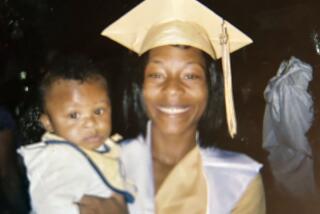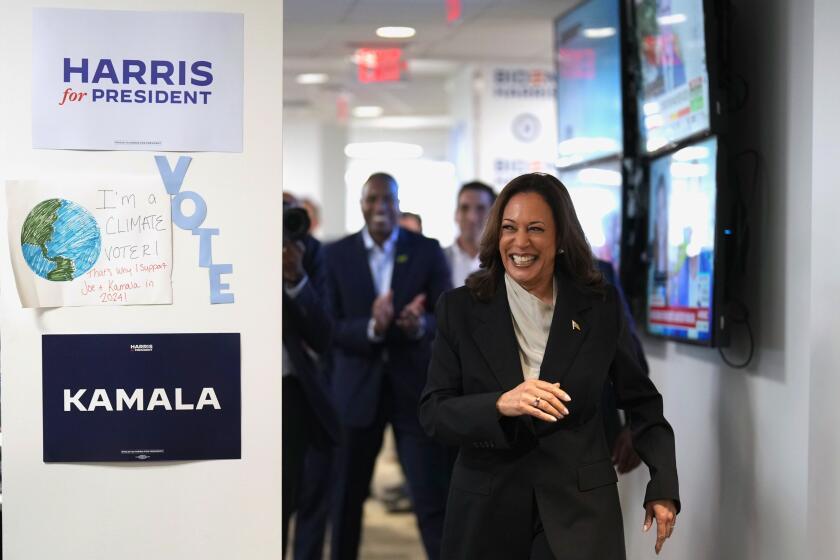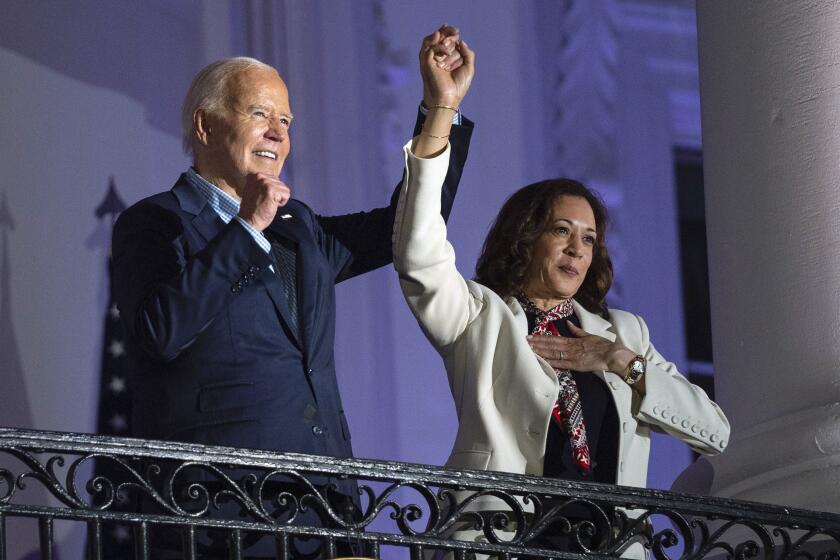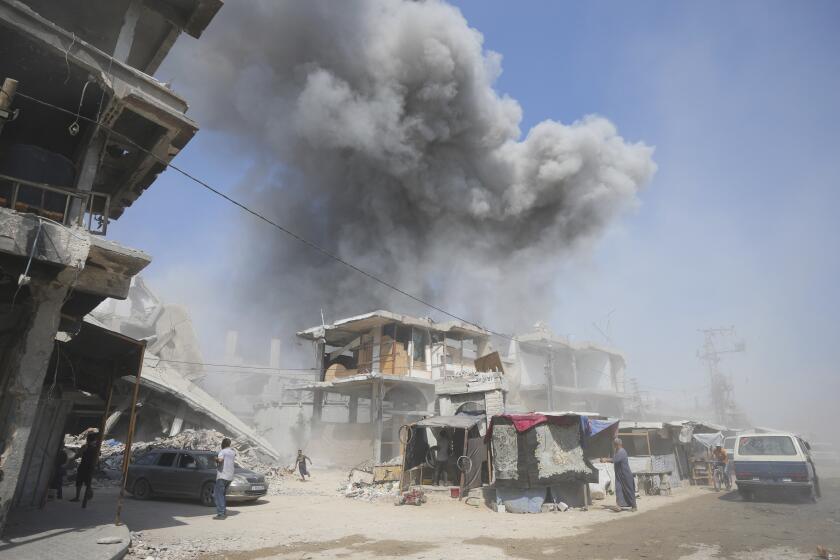Kermit Roosevelt; Arranged Iran Coup
Kermit Roosevelt, a CIA operative who was a key player in the 1953 coup that restored Shah Mohammed Reza Pahlavi to power in Iran, died Thursday of complications from a stroke. He was 84 and passed away in a Cockeysville, Md., retirement home.
The grandson of President Theodore Roosevelt and a distant cousin of President Franklin D. Roosevelt, Kermit Roosevelt was a specialist in Middle Eastern affairs for most of his professional life. He was teaching history at Harvard University when he joined the OSS, a forerunner to the CIA, during World War II. He served in an operational role in Egypt and later wrote a history of the agency.
But it was during a time of intense global rivalry with the Soviet Union that Roosevelt helped engineer one of the most spectacular episodes of British and American intelligence work--the toppling of Iran’s elected prime minister, Mohammed Mossadegh, and the reinstallation of the shah.
After Mossadegh had presided over the nationalization of British-owned oil operations in Iran, British and American officials met in Washington to plan a strategy. Roosevelt was given the job of implementing the plan.
He traveled to Tehran and met with Iranian operatives. He also met secretly with the shah, who would soon be heading into exile, to offer him assurances that he was acting with the full authority of President Dwight D. Eisenhower and British Prime Minister Winston Churchill. As proof, he offered specific phrases that the coup leaders would use in a public statement within the next 24 hours, which they did.
At one point, there was a snag in the plan and Roosevelt drove to the apartment in Tehran where Fazlollah Zahedi, who was designated by the shah as Mossadegh’s replacement as prime minister, was staying. Roosevelt took the premier-designate, hiding under a blanket in the back seat of a car, to the residence of another CIA operative, where he would be safe from Mossadegh’s agents.
When it was certain that the coup would succeed, Roosevelt cabled his superiors in Washington that the shah “will be returned to Tehran in triumph shortly. Love and kisses from all the team.”
At the time, the coup was regarded in the West as a triumph that retained the loyalty of a strategically crucial Persian Gulf state.
“This was considered--and accurately so--an achievement that saved Iran from the Soviets, to be blunt about it,” said John Waller, a retired CIA agent and a longtime friend of Roosevelt’s. “I think [Mr. Roosevelt] was one of the giants of the agency.”
For the next 25 years, the shah ruled Iran as a staunch ally of the United States. Roosevelt was secretly decorated at the White House for his role in the operation.
But when the shah was finally ousted in 1979 by Islamic fundamentalists who embroiled the United States in an ugly and embarrassing hostage crisis, the U.S role in the 1953 coup was continually cited.
This past March, Secretary of State Madeleine Albright acknowledged the coup’s pivotal role in the troubled relationship that has existed between the two nations. She came closer than any U.S. official to offering an apology.
Kermit Roosevelt Jr. of Washington, D.C., remembered his father this week as “soft-spoken, careful and not wildly expansive.”
Roosevelt said his father was a “circumspect” man whose demeanor mystified many.
“I recall what Kim Philby had to say about my father,” Roosevelt said referring to the notorious British double agent: “ ‘He was the last person you’d expect to be up to his neck in dirty tricks.’ ”
The elder Kermit Roosevelt, known to friends as Kim, was born in Buenos Aires, where his father was a banker and shipping line official. He was raised on Long Island and was a graduate of Harvard.
Roosevelt left the CIA in 1958, served six years as director of government affairs for Gulf Oil, then organized and directed a consulting and lobbying operation that specialized in assisting U.S. firms with business interests in the Middle East and with foreign governments.
His writings included an account of his role in the coup in Iran, “Countercoup: The Struggle for the Control of Iran,” published in 1979.
Survivors include his wife, Mary “Polly” Roosevelt; four children; a brother; and seven grandchildren.
More to Read
Sign up for Essential California
The most important California stories and recommendations in your inbox every morning.
You may occasionally receive promotional content from the Los Angeles Times.






